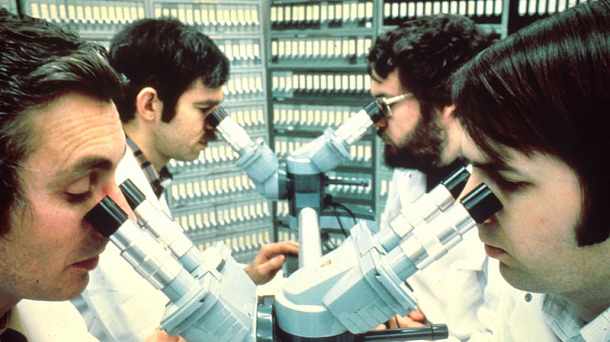In science, objective observation is the gold standard - at least, that’s what most undergrads hear in every science class. But what exactly is the difference between objective vs. subjective?
Since concepts are much easier to explain in context, let’s start with some definitions and then look at an example of how they migjht apply in real life.

Pathologists making objective observations
Definition of Subjective
The Merriam-Webster dictionary, defines subjective as:
“characteristic of or belonging to reality as perceived rather than as independent of mind.”
The definition essentially says that when something, like an observation, is subjective, it has its basis inside of a person’s mind. When that is the case, the subjective observation is ruled by the life, memories, biases, and prejudices of the person that came up with it. A subjective observation is based on how an individual perceives reality, rather than reality itself. Therefore, this observation could change wildly based on the person making the observation.
Definition of Objective
Merriam-Webster defines objective as
“of, relating to, or being an object, phenomenon, or condition in the realm of sensible experience independent of individual thought and perceptible by all observers.”
This means that the observation originates and occurs outside of the mind of any one individual. When this is the case, that observation is observable by any other person looking at the same situation, provided subjective biases are removed.
An Example
I got into an argument with a friend once over whether or not a film was “good”. His point was that he could not relate to the themes of the film, and therefore did not enjoy it, making the film a bad movie. He felt that his opinion was enough to classify a film as “bad”.
Having not seen the movie, I had no personal bias upon which to base my opinion. I had, however, heard from several people about the technical values of the film. Things like the quality of the cameras used, the subtlety of the direction choices or the complexity of the score.
In this example, one could argue that there is no “objective” way to observe a movie as a whole. By nature, experiencing a film is a subjective experience, colored by our own individual preferences, experiences, and emotional sensitivity. My friend’s personal experiences and tastes caused him to subjectively evaluate the film as “bad”.
But while my friend may have subjectively observed the film as “bad”, this doesn’t change my other friends’ objective observations about specific elements of the film - the high level of the camera work, the use of cutting-edge special effects, the critical acclaim of the actors. In fact, a person can subjectively experience a film as “bad”, “boring”, or “offensive”, while objectively acknowledging the technical merits of the film.
Objectivity in Science
The reason why objectivity is so important in science is that science deals in objective facts rather than subjective opinions. A main component of the scientific process is the ability for any experiment to be replicated by anyone with inclination to do so.
This replication and reproduction of data is the only way that concepts become accepted in the scientific community. If an observation cannot be recreated, then that original observation is usually deemed a coincidence or human error in observation.
The real difference in subjective vs. objective is that objective situations can be observed independent of personal biases and experience (i.e. data), whereas subjective situations can usually only be viewed by one person, filtered through their unique lens of personal experience, taste, emotion, and bias.
Works Citedobjective. 2013. In Merriam-Webster.com.
Retrieved February 15, 2013, from http://www.merriam-webster.com/dictionary/objective
subjective. 2013. In Merriam-Webster.com.
Retrieved February 15, 2013, from http://www.merriam-webster.com/dictionary/subjective